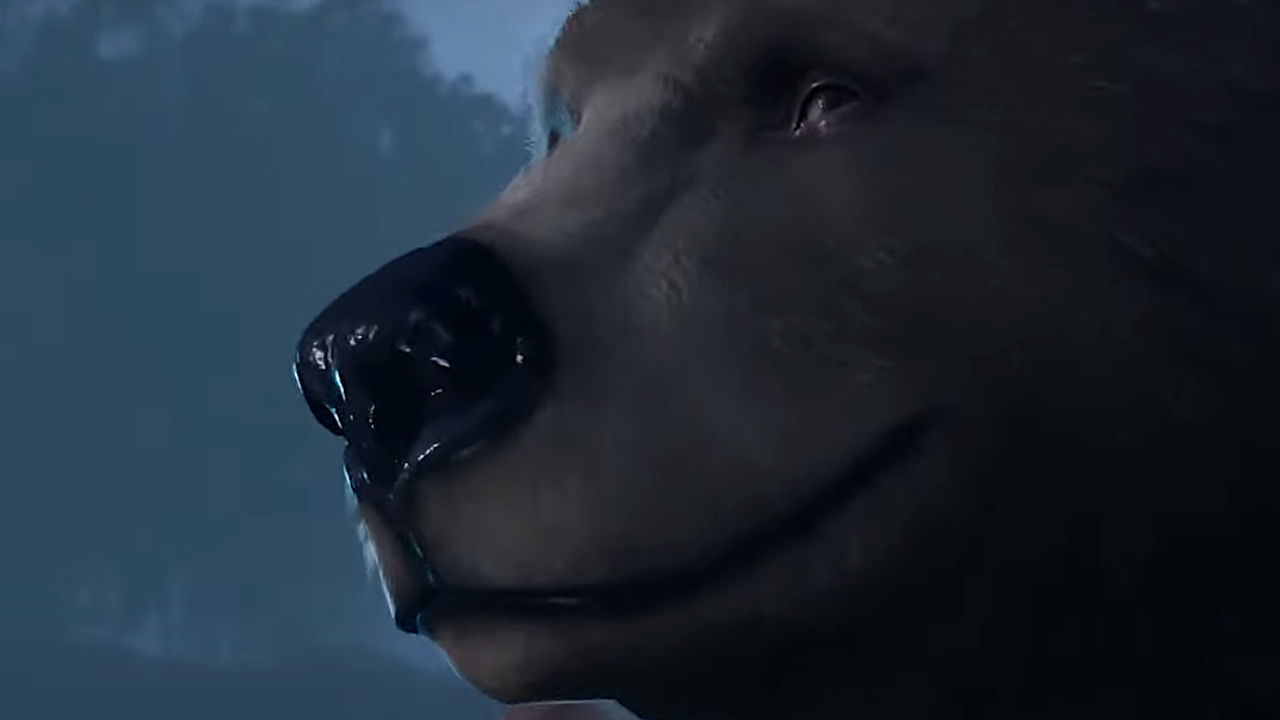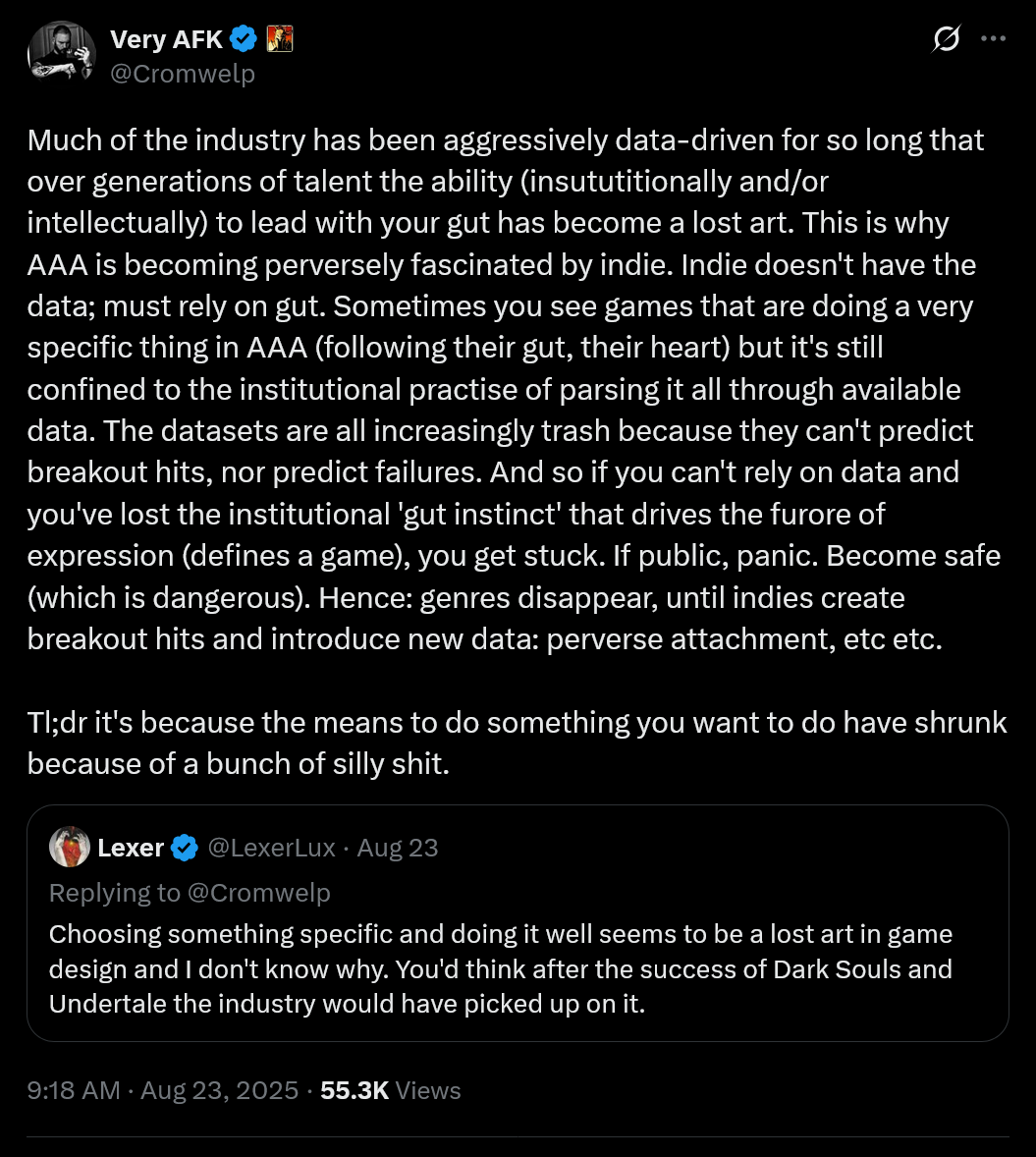
Larian publishing director Michael Douse, never shy about sharing his opinions on the videogame business, did so again over the weekend with thoughts on why the big-budget game industry isn't able to drive innovation and is thus becoming "perversely fascinated by indie," which operates much more by gut instinct.
The whole thing arose from some comments about Mafia: The Old Country, which Douse really liked (much more than we did), saying its smaller scale "feels more polished, mechanically richer and narratively stronger than any previous Mafia game." That led one of his followers on X to observe that "choosing something specific and doing it well seems to be a lost art in game design ... You'd think after the success of Dark Souls and Undertale the industry would have picked up on it."
The commenter said they didn't know how this state of affairs had come about, but Douse had thoughts. "Much of the industry has been aggressively data-driven for so long that over generations of talent the ability (institutionally and/or intellectually) to lead with your gut has become a lost art," he wrote. "This is why AAA is becoming perversely fascinated by indie. Indie doesn't have the data; must rely on gut.
"Sometimes you see games that are doing a very specific thing in AAA (following their gut, their heart) but it's still confined to the institutional practise of parsing it all through available data. The datasets are all increasingly trash because they can't predict breakout hits, nor predict failures. And so if you can't rely on data and you've lost the institutional 'gut instinct' that drives the furore of expression (defines a game), you get stuck. If public, panic. Become safe (which is dangerous). Hence: genres disappear, until indies create breakout hits and introduce new data: perverse attachment, etc etc."

The big-budget game industry's embrace of safety, and the resulting stagnation, is understandable, in the sense that it's basically inevitable: Major game companies are essentially investment institutions now, worth many billions of dollars and responsible to hordes of twitchy shareholders who must be kept happy above all else. For them, risk just isn't an option, which is why one of the big stories of 2025 is the showdown between Battlefield 6 and Black Ops 7.
On the indie side of the equation, meanwhile, risk is baked in: It's often a few friends with spare time, an idea, and maybe a Kickstarter campaign, who want to make a game not because their year-over-year revenue projections are looking a little soft, but because they hope their idea is a good one and they're determined to find out.
Which isn't to say the bare-metal indie scene is fully behind the wheel, driving the next big thing in videogames. Douse said "design innovation" comes from the indie space, while the triple-A industry drives graphical innovation: "Somewhere between those two things defines what everyone plays and if that link isn't sustained you get stuck."
Larian, of course, is one of the few studios to thread that needle, finding major success doing a "very specific thing" (sprawling fantasy RPGs) while still resolutely pursuing gut instincts (bear sex). And while its future finally seems secure, the studio seems determined to avoid becoming "stuck," as Douse put it: Larian currently has two new projects in development, and neither of them are Baldur's Gate 4.







